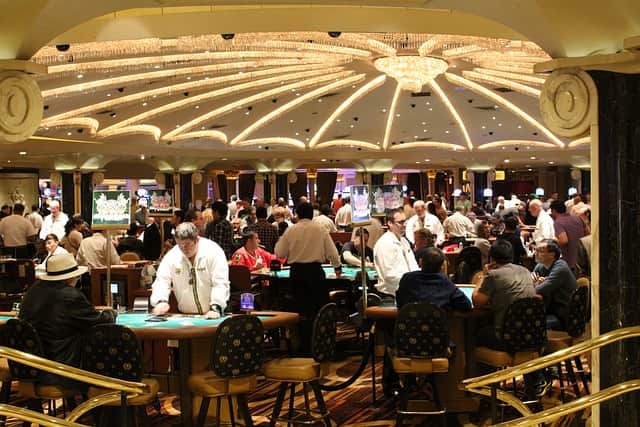
Sule Slot has rapidly gained popularity as one of Indonesia’s most trusted and reliable online slot sites. The platform offers an impressive array of games, from classic slots to the latest gacor slots, catering to both casual players and high rollers alike. But what sets Sule Slot apart from the competition, and why has it become a go-to destination for Indonesian gamblers? Let’s explore what makes this site a top choice for those looking to spin the reels.
What is Sule Slot?
Sule Slot is an online gambling platform that specializes in slot games. It is known for offering diverse games, each designed to provide players with an exciting and engaging experience. The site has quickly earned a reputation for being both secure and trustworthy, making it a favorite among Indonesian players.
One of the standout features of Sule Slot is its commitment to fair play. The site uses advanced algorithms and Random Number Generators (RNGs) to ensure that all games are conducted fairly. This commitment to integrity is one of the reasons why Sule Slot is considered a trusted gacor site in Indonesia.
Gacor Slots: What They Are and Why They Matter
In the world of online slots, the term “gacor” is often used to describe games that have a high Return to Player (RTP) rate. These slots are known for paying out more frequently than others, making them particularly attractive to players who are looking to maximize their winnings.
Sule Slot offers a wide selection of gacor slots, each with a high RTP rate, giving players a better chance of winning. The site provides detailed information about each slot’s RTP, allowing players to decide which games to play. This transparency is another reason why Sule Slot has become a trusted platform for online gambling in Indonesia.
Why Sule Slot is Trusted in Indonesia
Trust is a crucial factor when choosing an online gambling platform, and Sule Slot has worked hard to earn the trust of its users. The site is fully licensed and regulated, ensuring that it operates within the legal framework set by Indonesian authorities. This means that players can enjoy their favorite games without worrying about the legality of the platform.
Sule Slot also places a strong emphasis on security. The site uses advanced encryption technology to protect user data, ensuring that all transactions are secure. This level of security is essential for any online gambling platform, and Sule Slot’s commitment to safeguarding its users’ information is one of the reasons why so many players trust it.
User-Friendly Interface and Experience
One of the key reasons behind Sule Slot’s popularity is its user-friendly interface. The site is designed to be easy to navigate, with games categorized in a way that makes it simple for players to find what they want. Whether you’re a seasoned gambler or a newcomer to online slots, you’ll find Sule Slot’s interface intuitive and easy to use.
The platform is also mobile-friendly, allowing players to enjoy their favorite slots on the go. Whether you’re using a smartphone or a tablet, you’ll find that Sule Slot’s games run smoothly, providing a seamless gaming experience no matter where you are.
Promotions and Bonuses
Another reason why Sule Slot is highly favored among Indonesian players is its attractive range of promotions and bonuses. The platform provides various rewards, such as welcome bonuses for newcomers and ongoing offers for returning players. These incentives can greatly enhance your bankroll, offering you more chances to play and win.
Sule Slot also runs regular tournaments and competitions where players can compete for cash prizes and other rewards. These events add an extra layer of excitement to the gaming experience, making Sule Slot not just a place to gamble but a platform where you can engage with other players and enjoy a sense of community.
Customer Support
A reliable customer support system is essential for any online gambling site, and Sule Slot excels in this area. The site offers 24/7 customer support, ensuring that players can get help whenever they need it. Whether you have a question about a game, need assistance with a transaction, or simply want to provide feedback, Sule Slot’s customer support team is always ready to help.
The support team is knowledgeable and responsive, providing quick solutions to any issues that may arise. This level of customer service further solidifies Sule Slot’s reputation as a trusted platform for online gambling in Indonesia.
READ ALSO: Spin Responsibly: Guiding Principles for Safe and Enjoyable Slot Gacor
Conclusion
Sule Slot stands out as a trusted gacor and slot site in Indonesia, offering a secure and enjoyable gaming experience for players of all levels. With its wide selection of high RTP slots, user-friendly interface, generous promotions, and excellent customer support, Sule Slot has become a go-to platform for Indonesian gamblers. Whether you’re looking to try your luck on the latest slots or participate in exciting tournaments, Sule Slot has something to offer everyone. Sule Slot is the place to be for those seeking a reliable and engaging online gambling experience in Indonesia.




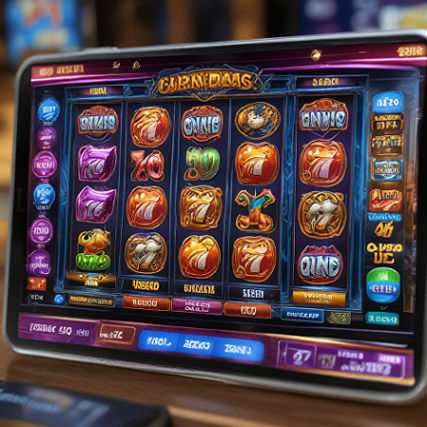

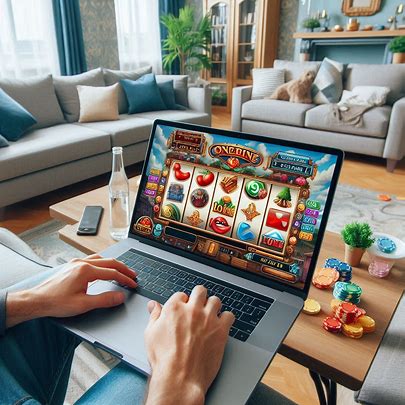
 Classic Slots may actually brings you back to the old days of gambling. So, experience nostalgia when you dive into playing this gameplay. The classical symbols of bars, cherries, and fortune sevens are present here. For an added thrill, keep an eye out for games that put a contemporary spin on the old formula.
Classic Slots may actually brings you back to the old days of gambling. So, experience nostalgia when you dive into playing this gameplay. The classical symbols of bars, cherries, and fortune sevens are present here. For an added thrill, keep an eye out for games that put a contemporary spin on the old formula.
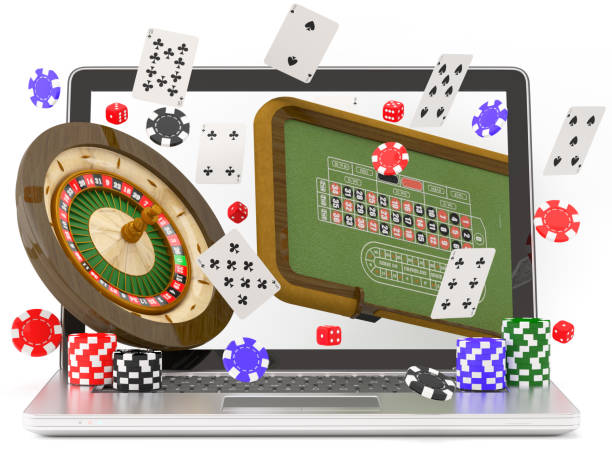

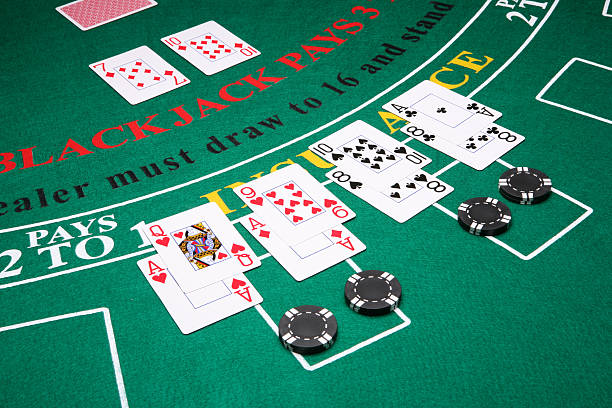 Online blackjack could be just what you’re looking for if you love the excitement of a casino setting and the strategic difficulty of card games. This game is perfect for:
Online blackjack could be just what you’re looking for if you love the excitement of a casino setting and the strategic difficulty of card games. This game is perfect for:

 Ethereum casinos have been gaining traction in online gaming, offering a unique blend of security, speed, and anonymity that traditional online casinos often fail to provide. This article explores how platforms are utilizing the capabilities of blockchain technology, especially the smart contract features of Ethereum, to transform the online gambling landscape. We will discuss the major benefits of engaging with Ethereum-based casinos.
Ethereum casinos have been gaining traction in online gaming, offering a unique blend of security, speed, and anonymity that traditional online casinos often fail to provide. This article explores how platforms are utilizing the capabilities of blockchain technology, especially the smart contract features of Ethereum, to transform the online gambling landscape. We will discuss the major benefits of engaging with Ethereum-based casinos. Classic slot machines are unique from their modern-day equivalents in that the outcomes of playing them are completely dependent on chance. A new age of complexity has emerged, though, with the introduction of RNGs and predictive AI. As a result, slot machines can now assess the player in real time by processing this data at light speed.
Classic slot machines are unique from their modern-day equivalents in that the outcomes of playing them are completely dependent on chance. A new age of complexity has emerged, though, with the introduction of RNGs and predictive AI. As a result, slot machines can now assess the player in real time by processing this data at light speed.
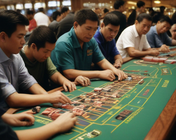 The Philippine Amusement and Gaming Corporation (PAGCOR) is a critical player in regulating gaming in the Philippines. Since its founding in 1976, PAGCOR has served as both a slot gacor regulatory authority and a business. It manages every facet of the gaming sector, including online gambling platforms, sports betting, casinos, and electronic gaming sites.
The Philippine Amusement and Gaming Corporation (PAGCOR) is a critical player in regulating gaming in the Philippines. Since its founding in 1976, PAGCOR has served as both a slot gacor regulatory authority and a business. It manages every facet of the gaming sector, including online gambling platforms, sports betting, casinos, and electronic gaming sites.
